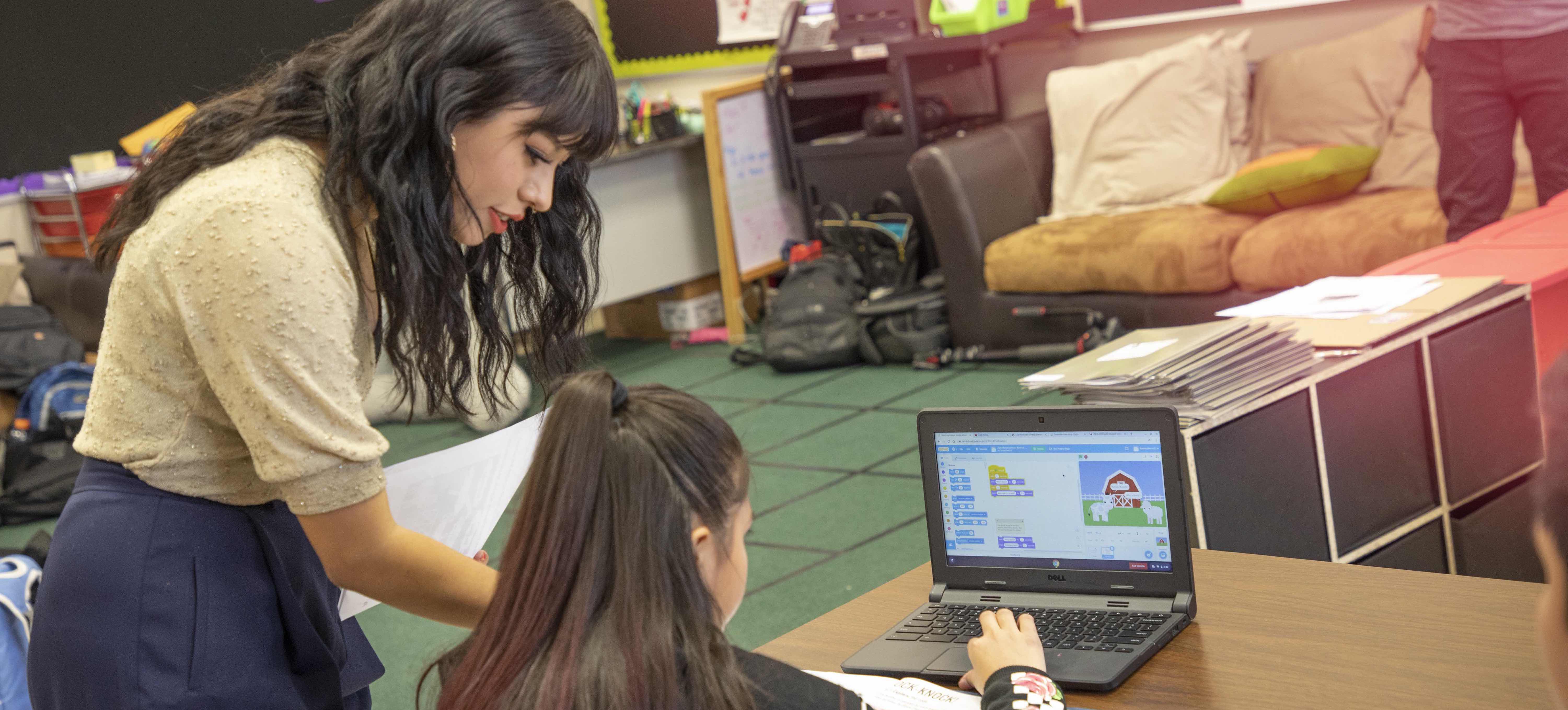Charlcee Cervantez | November 28, 2023

In a significant achievement for Texas State University, the College of Education’s Teacher Residency Program has received reapproval from the Texas Education Agency (TEA) for the 2023-24 academic year and has earned a well-deserved spot on the TEA Vetted Teacher Residency Program list.
The list is a prestigious compilation of Texas educator preparation programs renowned for offering high-quality teacher residency programs. This recognition comes in anticipation of state and federal grant opportunities, where educational institutions are required to collaborate with top-tier teacher residency programs.
The application was a collaborative effort that involved the expertise of several accomplished faculty from the College of Education, including Patricia Rocha, Ph.D., Leticia Botello, Glenna Billingsley, Ph.D., Maneka Brooks, Ph.D., Jesse Gainer, Ph.D., Nancy Valdez-Gainer, and Jeffry King, Ph.D. Their valuable contributions and collective knowledge were instrumental in the success of the project.
“We are excited to be included on the Vetted Residency list for the second time,” said Maneka Brooks, associate dean for Academic Affairs and Educator Preparation. “It demonstrates the College of Education’s commitment to residency as an effective model for teacher education. It allows us to continue our work scaling and refining residencies with our district partners. It is a recognition of the quality of educator preparation at Texas State.”
A teacher residency pathway, as defined for this list, entails a teacher candidate being partnered with an experienced, highly effective mentor teacher for a full year of clinical training and co-teaching in a K-12 classroom. This partnership involves a minimum commitment of three days per week throughout the academic year. These invaluable residencies can occur at both undergraduate and post-baccalaureate levels, demonstrating a commitment to fostering outstanding educators at all stages of their development.
The College of Education currently provides Teacher Residency Pathways tailored to two key certification areas: All-Level Special Education and Elementary Level Core Subjects with English as a Second Language teacher certification. In addition, one of the pilot residencies is offered for those pursuing a secondary-level certification in math, science, English, or history.
One noteworthy aspect of the Teacher Residency Program is the possibility of residents receiving a stipend during their yearlong residency. This financial support acknowledges the dedication and hard work of teacher candidates as they embark on their journey to become exceptional educators. Across the board, resident teachers receive compensation from their respective school districts, ensuring financial stability during their intensive training period. Apart from the San Marcos CISD Pilot Residencies, the standard compensation for resident teachers stands at a commendable $20,000 distributed over the duration of their yearlong residency.
“Our program has opened many opportunities for future teachers enrolled in the College of Education,” Brooks said. “We have been able to secure about $2.1 million in funding that goes directly to support 120 TXST teacher residents this academic year alone. The students in our Elementary Education program who select our Teacher Residency Pathway are eligible to apply for the Charles Butt Scholarship, which provides them with professional development at an $8,000 a year scholarship for up to four years. Teacher residency is making a meaningful contribution to the lives of future teachers.”
The TEA Vetted Teacher Residency Program list is not just a seal of approval; it is a testament to the quality of teacher training and preparation offered by institutions like TXST. In an era where the role of educators has never been more critical, the reapproval is not just a recognition of past successes but a promise of continued excellence in shaping the future of education in Texas.
Share this article
For more information, contact University Communications:Jayme Blaschke, 512-245-2555 Sandy Pantlik, 512-245-2922 |
